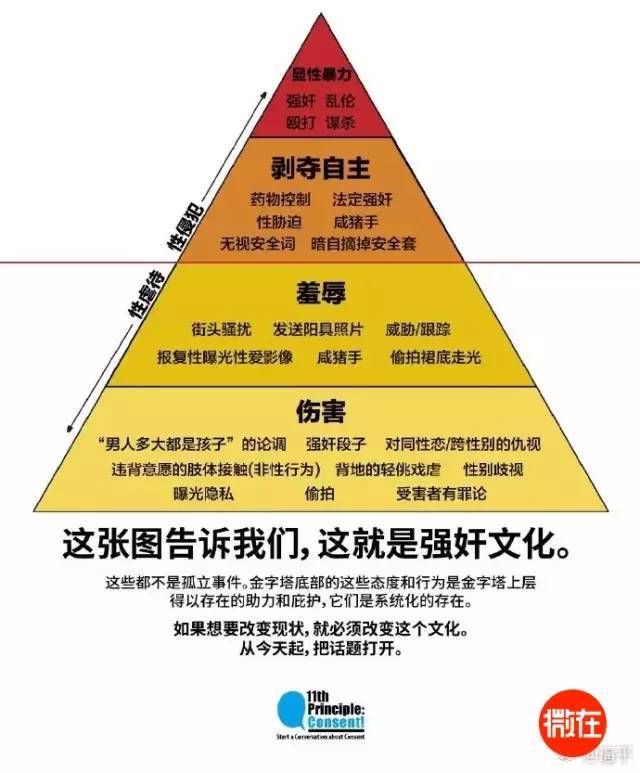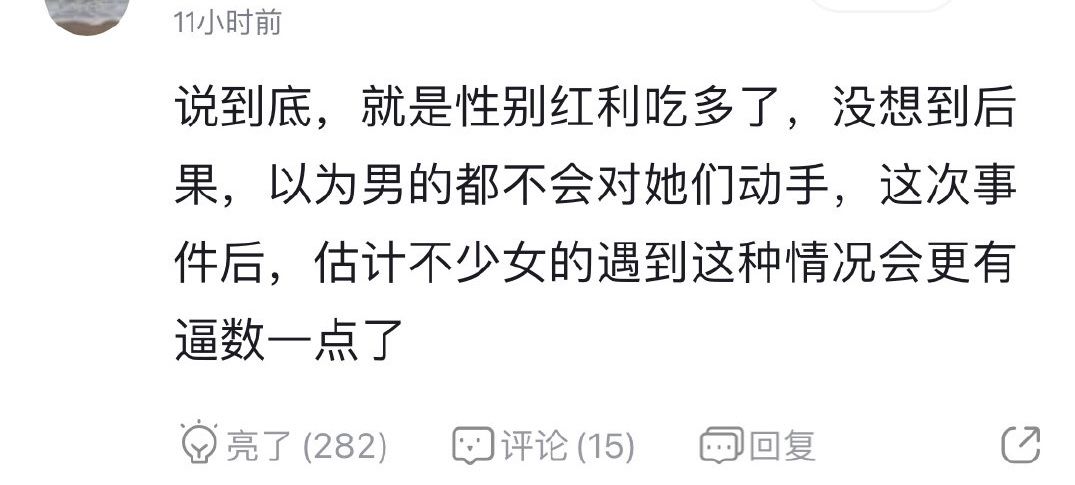Women's rights talk about the Tangshan incident: To solve the systemic gender violence, we need to break the authoritarian monopoly
In the early hours of June 10, an incident of male sexual harassment and beating of women occurred in a barbecue restaurant in Tangshan, Hebei. After the in-store surveillance video was disseminated on the Internet, it quickly appeared on Weibo's hot search. Later, Tangshan Public Security issued a notice stating that "the suspect has been locked and is being arrested." At this time, 15 hours have passed since the incident. On the 11th, the police once again issued a notice stating that "all persons involved in the case have been brought to justice", but did not release follow-up investigation information.
Internet public opinion launched a fierce debate on whether there was gender-based violence in the incident. The frequent occurrence of vicious incidents, the limited official response, and the anti-feminist attitude of mainstream public opinion have made many feminists feel hopeless about changing the status quo. How to understand the current situation of feminism from this incident, and how to think about what actions can be taken, are issues we must face.
(This article is compiled from Clubhouse's online event "Women's Rights Talk about the Tangshan Beating Incident". The following content is a summary of the guests' speeches.)
How the Female Perspective Breaks Through in Public Opinion
Why do many gender-based violence incidents fail to arouse public interest, but the incident in Tangshan has successfully ignited public opinion?
First of all, it is a very "extreme" case. It does not mean that the probability of occurrence is low, but that the information that the public can extract from it is very simple, and the visual stimulation is extremely strong. What we see is serious violence in a public space, between two people with few social ties, and presented through a clip with no context.
In contrast, some previous #MeToo cases presented rich details and complex interactions between the parties and the perpetrators under the social structure. Those who received the information could not intuitively "discover" the violence, which tested people's understanding of power relations. understand. Similarly, in the Fengxian incident, the public wanted to hear Li Ying's story more than Xiaohuamei, who was born in the countryside and was cheated by acquaintances because of her disability: a city girl was attacked by bad guys, and her fate changed 180 degrees overnight. .
Public opinion picks extreme cases and their perfect victims —perfect usually in the sense that they have no voice. And feminists must be very vigilant about this , because we need to rely on public opinion, but we cannot be used and backlashed by public opinion.
The parties involved in the Tangshan incident have been repeatedly emphasized as perfect victims: traveling together, not wearing revealing clothes, and not entering or leaving "dangerous places" such as bars. The intention of doing so may be to show that behind the innocent victimization of the parties is the crisis of all women. But the manifesto “I am not the perfect victim” and its refutation of rape culture was originally a very valuable asset that feminists contributed to public opinion. Now we use the victim again and again to check against some "perfect" list to prove that she deserves attention, which is definitely a step backwards.

Secondly, this extreme incident also brought together women's uneasiness about their own situation, and the mainstream patriarchal society's consistent suppression and backlash against women's voices. It is concentrated in the denial of the gender perspective of the incident by the official, mainstream media, and male intellectuals, as well as the debate between women and men on "whether men should take responsibility".
Official platforms, including the China Women's Daily, focus on the "underworld" and "sweeping black and evil" when issuing announcements, emphasizing that "everyone is likely to be harmed", while ignoring that it is a case caused by men sexually harassing women. violence against women, and the prevalence of sexual violence against women. In addition, the police statement and some media reports deliberately avoided the words "sexual harassment" and "assault", and replaced them with vague "strike up" and "confrontation". From this we can see a pattern of denial of gender-based violence: when the fact of violence cannot be concealed, the gender perspective is erased.
Many people who have a feminist perspective chose to follow the official discourse in order to resonate with more people and expand the impact of the incident, but they also unintentionally participated in the degendering of violence. This is cause for concern.
Another loss of focus of public opinion is reflected in the excessive attention paid to men. On the one hand, men dominate the discussion with the words "not all men are perpetrators" and respond to women's angry expressions; Defender of women's rights. This conflict tends to push our focus in two directions: appease the "accidentally injured" men, "educate" them how to be allies of women's rights, and pay a steady stream of emotional labor; or dehumanize men and default to violence It is an instinct that cannot be changed.
Behind "swearing at men" is a kind of potential despair for women. This sentiment should not be denied, and it is women's empathy that drives the spread of gender issues on the Internet. "Forcing" more men to admit problems and make commitments is also promoting environmental change. But focusing entirely on men, whether it leaves the stage of public discussion for "progressive men" to express themselves, or seeing violence as the essence of men and removing their public responsibility, is not the result we want to see.
In the Tangshan incident, the situation of the injured women, the responsibilities of the police and the public sector, and the safety of women in public spaces are all issues that must be investigated. We make it clear that men are the main body of responsibility in gender issues and do not need to rely on the guarantee of "good men". At the same time, we must not let our anxiety drive us away from effective public discussion.
Evidence of systemic gender-based violence
When we reject this incident as a single act of gangland violence against any individual, and see it as the tip of the iceberg of systemic gender-based violence, can we find evidence for this?
First of all, we have to face a difficulty, that is, the information provided by the event itself is not enough to fully reveal the structural problems behind it, because of the lack of in-depth reports and narrations by the parties involved. But it triggers long-acquired fears in women. Those rooted in our memories, the domestic violence and sexual assault incidents we have experienced, heard and witnessed, sexist policies, and the common slut shaming of women in our culture prove that we are in a society full of gender violence.
Since March last year, feminists have encountered large-scale online violence for opposing men smoking in public and pointing out their toxic "masculinity". At the time we called this phenomenon “gender terrorism” because it fit the hallmarks of terrorism: creating fear through indiscriminate attacks. Likewise, the seemingly random act of violence by a few men that creates widespread panic among women, reinforced by anti-feminist hate speech, is a sign of gender terrorism.



In addition to the violent and abused men, some men also participated in the conspiracy of gender-based violence in the form of "against violence". For example, while expressing "men have the responsibility to protect women" and "I am different from men who abuse", they ask women to stop talking about events from a gender perspective, "don't provoke gender confrontation" and "don't spread panic". There is also a kind of speech defending the men who were present but did not intervene in the incident, and regard them as the protectors of their wives, daughters and female companions around them. Therefore, their inaction will not damage the position that "women are necessarily protected by men".
Australian scholar Cornell divided masculinity into four types: dominant, complicit, subordinate, and marginal. Men who openly commit violence against women may only be a minority, but most people benefit from attachment to the gender system, sharing the dividends of a patriarchal society while avoiding risks and accountability. The follow-up public opinion of the Tangshan incident also reminds us to see how complicit masculinity participates in the whole structure.
Finally, patriarchal oppression at the national level keeps the gender-based violence system functioning. The fermentation of gender-based violence incidents has entered a mode of combining populism and authoritarianism: a single case that occurred in a local area caused a collective emotional outburst of the public, thus gaining the attention of hundreds of millions of people across the country. What followed was an authoritarian parachute and repression by the government. In this process, the government has never made any review for its connivance of violence and suppression of women and feminists. This is a "paternal" authoritarianism, and its other side has never escaped the punishment of women.
For example, a large number of followers of the Feng County incident were harassed and warned. Among them, the feminist "Wuyi Gucheng" was arrested for launching offline protests and publicly reporting police violence. His whereabouts are still unknown. Also in this incident, we can hear some voices questioning whether the police did not intervene in the investigation in a timely manner, and demanding that the systemic gender discrimination and violence be corrected. But the government only issued a unified announcement after the public opinion fermented, stating that it would be "severely punished", and then it could come as a protector and punisher, and terminate effective discussions and bottom-up accountability by deleting posts and banning accounts.

Violence from public power is invisible. Time after time, the government retreated from the ground and "settled accounts after the autumn", which made feminists "disarmed" in the process of developing individual or organizational strength to fight against violence. This triggers our anger, but it also leads to the powerlessness of the anger.
Not just feminists, but everyone else suffers from this sense of powerlessness. A woman at the scene said in an interview that she tried to intervene and call the police, but was stopped by her companions on the grounds that "someone will definitely be in charge." The real problem may not be whether individuals have a sense of justice and courage, but that under the monopoly and deprivation of the state machine, we have lost the ability to protect ourselves and others . Just like we can't protect ourselves during the epidemic, we must live under the unified supervision of the state,
If public power itself can be understood as a kind of violence, can feminism mobilize state violence to deal with violence at the individual level? The answer is obviously no.
Under the official statement, some female netizens called for "everything should be punished" and "all should be arrested", and even asked "men to enter and leave public places with a statement that they have not drunk for 72 hours". These languages are so dangerous that they make the whole society into one big prison. In fact, it is precisely in the "prison" constructed by the epidemic prevention policy that we are in, there are situations where victims of domestic violence are not allowed to leave the family after being injured, and are asked to reconcile with the perpetrator, just because the implementation of detention is harmful. There are procedural troubles for the police. Strict social control cannot give women justice, because women's safety has been surrendered.
Finding a way out for women's rights under the authoritarian model
Feminists now face the question: Can our outrage, once and for all, still promote social change? If populist mobilization and authoritarian parachuting are not the solutions we hope for to address gender-based violence, we must imagine and engage with another paradigm.
Our window to start social movements through public events is closing. In the past, our advocacy was able to win the participation of tens of thousands of people, and indeed promoted the progress of laws and policies related to gender violence, such as the introduction of the "Anti-Domestic Violence Law" in 2015, and the addition of "special duty Personnel Sexual Assault". But it is difficult for us to do the same advocacy for the Tangshan incident.
On the one hand, the harassment of action participants by public powers makes organizing work very difficult. On the other hand, structural change requires extensive discussion and truly democratic participatory processes, and such a space does not currently exist, and may never have been truly opened, nor can it be opened through one-off advocacy.
The current individual case advocacy only allows us to see the results of the government’s handling of a single case. For example, the Wu Yifan sexual assault incident has entered a black hole: in order to cope with public opinion, the government used the punishment of Wu Yifan as a “sacrifice”. What promotes anti-gender violence, we don't know. Numerous advocacy efforts have not brought about long-term improvements in resource allocation and accountability mechanisms, so similar incidents continue to occur in an endless loop.
The desperation and powerlessness of feminists is real, and we must acknowledge these feelings, and the powerful indictments that lie within them. But we still have to find an outlet for ourselves. Because society needs change, and life is short, we cannot wait.
We cannot pursue urgent change, but we can try within our means to contribute to structural change : strengthening the feminist discourse, which holds our communities together; building connections through activism, if not organizing action. Can organize discussions to increase the consistency of ideas in the community, thereby increasing our social capital; try to create mutual and equal support networks without resorting to authoritarianism, even if it is only within a group or a small range of partners time; mobilize and discover our own resources, and contribute to our spontaneously established community.
These are not empty words. We can observe, participate in, or offer some support to the individuals and organizations around us who are doing community service. When radical advocacy is undercut, it is the micro-level work of these communities that sustains the self-organizing spaces of society.
On a personal level, we need to try to break out of our own safety zone. The polarization of public opinion on social media will amplify our fears and anxieties. As a result, many people feel disappointed with the environment, choose to withdraw from public discussions, or no longer seek public solutions, and turn their expectations to practicing self-defense and improving personal capabilities, etc. " self-defense” approach. But just as we learn fear from incidents of gender-based violence, we must also “learn” to resist when we are hit if we don’t want our activities to shrink.
In the Tangshan incident, the woman who wanted to intervene in the violence but was stopped by her peers finally chose to call the police and returned to the scene of the violence to confirm the safety of the victim; Recognize and reflect on your own experiences. These are examples of female power. Although it may not be possible to achieve the desired results, only through the process of resisting structural violence can we believe that we have the ability to resist.
We can share experiences of resistance with other women, and learn professional knowledge to support those involved in domestic and sexual violence. In a situation where women’s voices are suppressed and only extreme gender-based violence can trigger large-scale discussions, we should cherish the remaining “legitimate” space for speech, convey valuable rather than emotional information, and let feminism The sound has more volume.
There are also many women talking on social platforms. They found that their trusted male friends, partners, and family members made remarks blaming the victims in the Tangshan incident, so that they were shocked that the relationship could not continue. It's almost become a phenomenon. Public incidents of gender-based violence serve as a litmus test, prompting these women to re-examine the intimate or family relationships they are currently in.
Feminists' online sterility proclamations are often seen as catharsis or dismissed as a joke. But more and more women no longer cooperate with men to enter the mainstream life, which is actually a kind of conscious resistance. We can look at this personal life practice positively and look forward to the changes it will bring to people. Whether it is active or passive resistance, no matter how far we can go, as long as it is anti-establishment and anti-culture, it can be tried.
Above all, we cannot forego the creation of feminist knowledge. Especially at a time when we are constantly being deprived of information, suppressing space, and restricting freedom, it is a very precious job and our long-term responsibility to insist on developing our action and alternative thinking. The intelligence developed based on women's voices and women's thinking not only belongs to women themselves 100%, but also contributes to our understanding of the country and the world under authoritarianism.
Like my work? Don't forget to support and clap, let me know that you are with me on the road of creation. Keep this enthusiasm together!
